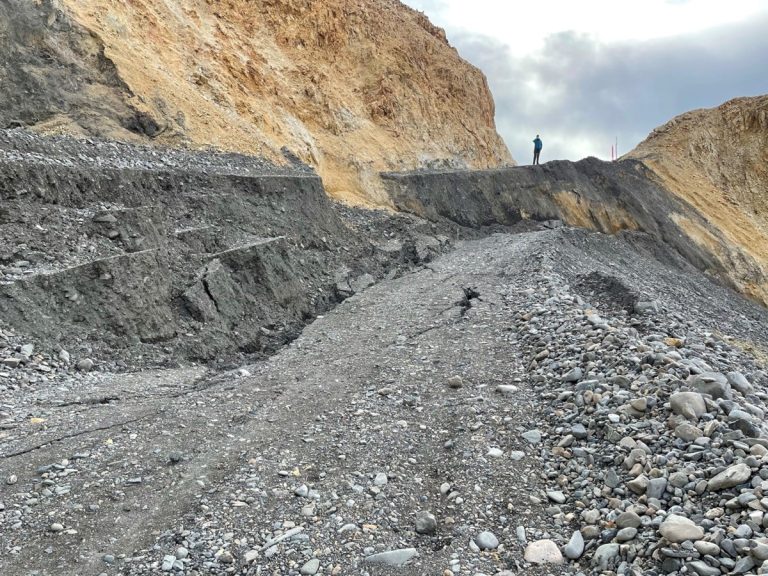September 16, 2021, photo of eastern side of the Pretty Rocks landslide on Denali Park Road. The displacement of approximately 14 vertical feet seen below the person standing on the stable road surface (for scale) occurred over two weeks following the cessation of maintenance and road use on September 2, 2021. NPS photo.
Denali Park managers have known about the Pretty Rocks landslide at mile 45.4 of the park road since the 1960s. A swath of the mountainside has been slipping for decades, but at such a slow pace it was never a cause of major concern. By the 1990s, the slide started causing small cracks in the road’s surface and maintenance was required every few years. In 2014, park workers noticed things were speeding up. The slide’s rate increased over the next few years to over half an inch of movement per hour in August 2021. Road crews dumped as much as 100 truckloads of gravel on the road to keep it passable. Late that month, the park announced upkeep was no longer feasible or safe and closed the road past the Pretty Rocks slide.
The park service says climate change is a major culprit behind the slide turning from a non-issue into a big impact. The band of earth where the slide is occurring is permafrost comprised of rock and ice. A warmer average annual temperature and increased precipitation has caused the substrate to melt and become unstable.
There’s no viable short-term fix for the road, so the park service is looking at a long-term solution that includes building a roughly 400-foot bridge over the Pretty Rocks slide. The plan also includes construction of a retaining wall along a nearby section of road impacted by the Bear Cave landslide. Though most of Denali National Park will be open, the park road will remain closed past the Pretty Rocks slide during the 2022 season, and buses will turn around at mile 43.


Comments are closed.